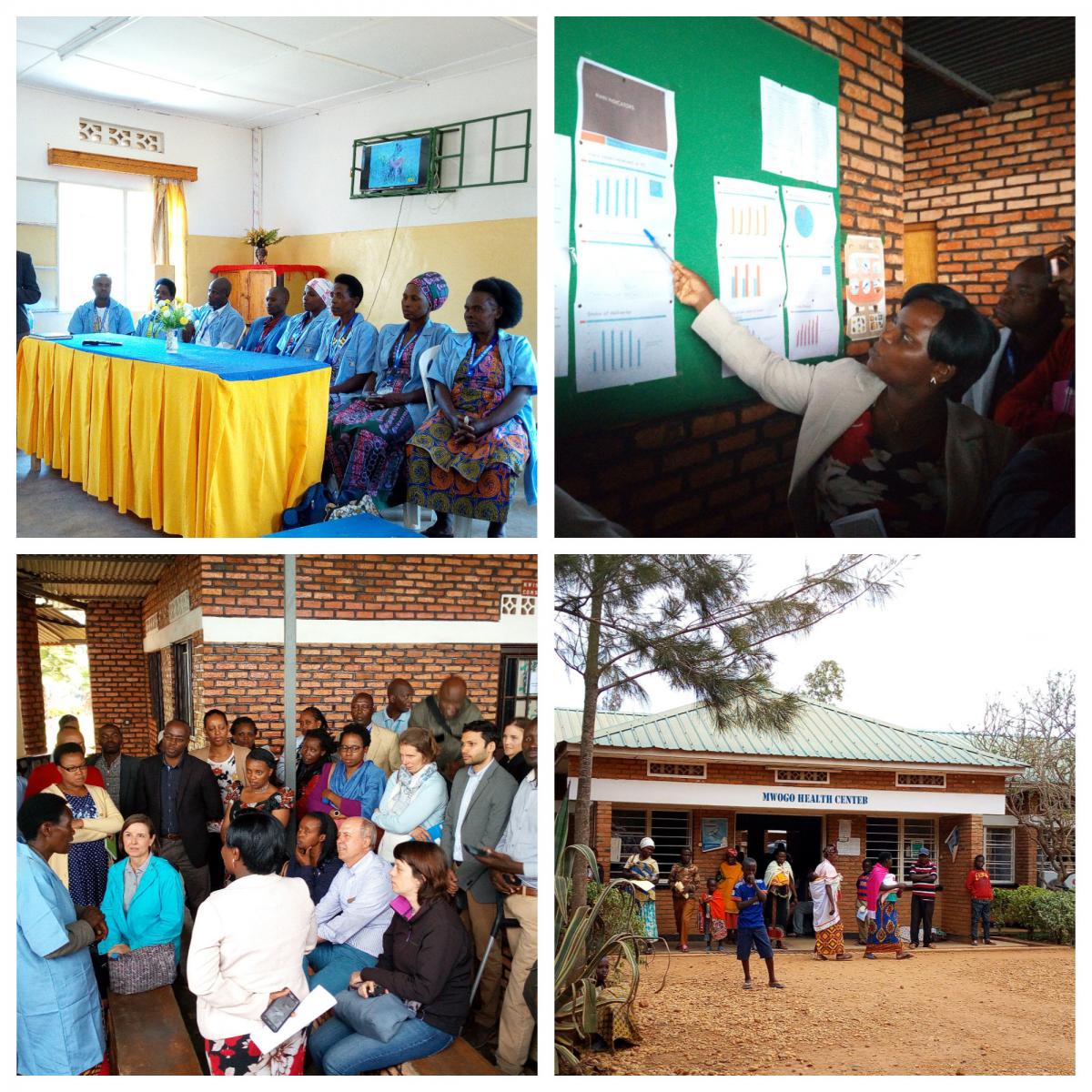Health Sector Working Group Field Visits
Between 24th and 26th October members of the Health Sector Working Group, including BTC and the Embassy of Belgium, conducted joint field visits to the Districts of Nyabihu, Gicumbi and Bugesera with a special focus on Family Planning, Nutrition and Hygiene.
The visits were led by the Director General of Planning, Health Financing and Information Systems of the Ministry of Health. Bilateral and multilateral development partners as well as civil society organisations participated in high numbers. In each district, the local authorities presented the district health profile as well as achievements, challenges and good practices in the chosen topics and in other areas such as maternal health, malaria and community-based health insurance (mutuelles de santé). Discussions were followed by on-site visits to health facilities and Community Health Workers' cooperatives where participants were briefed on key services provided.
Family planning and Youth Friendly Corners
In the area of family planning for example, participants were briefed about the youth friendly corners set up in some health facilities where adolescents can receive counselling on sexual and reproductive health and family planning methods. The Demographic and Health Survey of 2014/15 found that 7% of girls between 15 – 19 years of age had begun childbearing (i.e. being pregnant or having given birth to a child) which was a slight increase from the 6% shown in the previous survey (2010). A number of cultural barriers with regard to access to services for the youth remain but the government is committed to addressing the issue and has been calling upon various stakeholders, starting from the household level, to take more responsibility for sensitising the youth in order to avoid unwanted pregnancies while scaling up access to services in facilities as well.
Addressing malnutrition
Interventions to address chronic malnutrition (also known as ‘stunting’ which is defined as low height-for-age) have been stepped up in some districts with the support of development partners. One particular case is the district of Nyabihu, which benefits from high agricultural productivity and supplies food to many parts of the country yet faces the highest rate of stunting affecting 59% of children under the age of 5 according to the 2014/15 Demographic and Health Survey (while the national average stood at 38%). Again, the government is addressing these challenges which among other things requires changing mindsets and promoting better and more diversified eating practices.
Peer to Peer Learning Opportunities
The field visits are highly valued by development partners as they provide an excellent opportunity to take stock of strides being made at different levels of the health system and to appreciate the commitments of the local authorities in delivering quality health care. The visits offer a space for peer-to-peer learning between stakeholders working at the policy level and health care providers on the ground and are seen as an important tool to inform and strengthen policy dialogue. Findings from the field visits are presented at the Joint Health Sector Review, which is a semi-annual forum chaired by the Permanent Secretary of the Ministry of Health .
Health, a priority sector for Belgium
Belgium has been a long-standing partner of the health sector in Rwanda. BTC currently supports a variety of interventions in close collaboration with the Government of Rwanda, namely through:
i) sector budget support;
ii) a capacity development pooled fund to strengthen human resources for health ;
iii) the Ubuzima Burambye (‘Long healthy life’) institutional support programme which focuses on leadership and governance, quality of health care, urban health, mental health and maintenance of medical equipment and infrastructure.
Latest news from this project
No news

